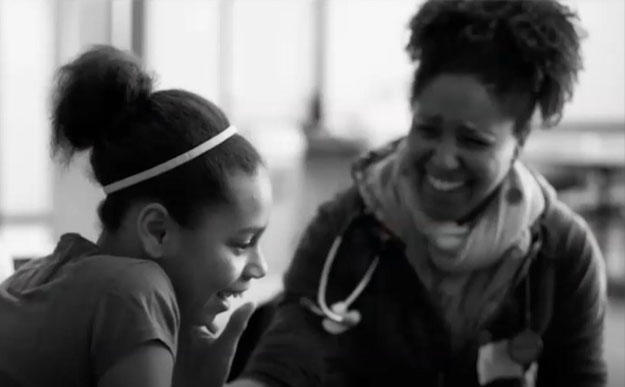Crichlow stresses need for a "Ladder" to education

“We don’t need a pipeline. We need a purpose.”
Renee Crichlow, MD, drove this point home: pipelines leak and break, and they only go one way. So they’re not the way to foster growth for underrepresented communities.
What Black and Brown young people need in North Minneapolis isn’t such a pipeline. They need a purpose—and that’s exactly what Crichlow aims to provide.
Crichlow, a former professor in family medicine at the University of Minnesota and physician at Broadway Family Medicine in North Minneapolis, shared her story at the second in this year’s Digital Grand Rounds series for the School of Dentistry’s Continuing Dental Education program.
Now in its fourth year, Digital Grand Rounds brings dental professionals together virtually to discuss contemporary topics as a community of experts. The series makes up one component of the School of Dentistry’s commitment to continuing education for alumni and the greater community.
The February session allowed Crichlow to share her first-hand experience of creating equitable solutions that close gaps in health and education through The Ladder, a cascading mentorship program for Black and Brown learners aged 9 and up and interested in the medical field.
Crichlow’s program stresses the importance of equity and trust in improving health and educational outcomes. “Investing in education is investing in health,” she explained. And that’s why she’s investing in young students of color who want to become doctors.
It started when she was a physician at Broadway Family Medicine, serving children from the North Minneapolis area. “We asked every kid who came in what they wanted to be when they grew up, and quite a few answered ‘doctor’ or ‘nurse.’”
The answers excited her, but there was a disconnect: “We weren’t seeing any children from North Minneapolis at the University of Minnesota’s Medical School. There are a lot of Black and Brown children interested in medical school, but they weren’t making the cut.”
Crichlow cited a lack of time and resources to properly prepare for medical school, from unpaid internships to expensive test preparation and travel for interviews. What schools were expecting wasn’t working for Black and Brown students from the North side of the city. “We’ve been trying to get students into medical school like we’re pushing a square peg into a round hole,” she explained. “And instead of changing the hole, we’ve been trying to shave off the sides. That’s just not working.”
That’s how Crichlow came up with the idea for The Ladder: a space where each person could grow in their goals, and mentor others as they followed. Founded in 2012, the program embraces the motto, “Lift as you climb, build as you grow.”
Crichlow introduced participants in the February Digital Grand Rounds session to the typical makeup of a Ladder meeting, which involves leveling the playing field among participants, who call themselves medical scholars. Scholars agree upon the same core values and principles, share a meal together, then rotate through medical learning stations.
Crichlow sees the program as a community of purpose, a long-term commitment to a community that builds trust and resilience and ultimately improves outcomes for Black and Brown youth and their community.
The Ladder has seen significant results, including an increase in academic faculty diversity, a decrease in burnout among physicians in the program, and a decrease in middle school suspensions for participants. And it’s happened without undue cost: Crichlow is proud that her program could run in one chapter for 33 years for the same cost of imprisoning one young person for one year.
“This is equity,” she explained.
Crichlow is proud of the students, residents, and doctors she’s seen through the program, whom she showcased throughout the presentation. But what she’s proudest of is how her students are giving back to their community and impacting those who come after them.
Showing a photo of a Black patient and her Black doctor, Crichlow encouraged attendees to look at the patient’s face. “See the trust with which she looks at her doctor,” she said. “That’s what happens when you have physicians, dentists, nurses who look like the community they serve. It helps restore trust in the entire healthcare community.”
A recording of Crichlow’s presentation will be made available at a later date on CDE Anytime. Learn more about the Digital Grand Rounds series.